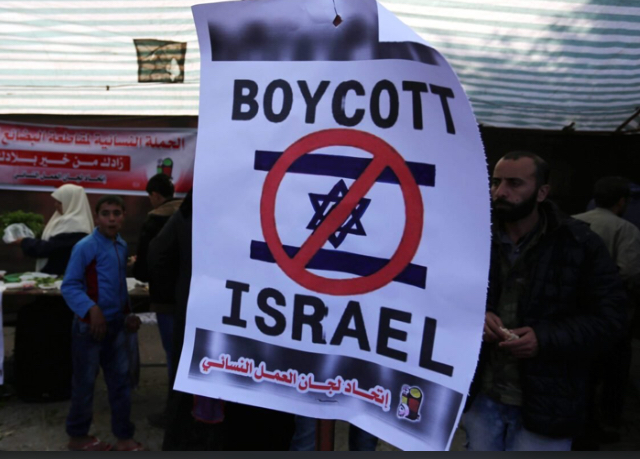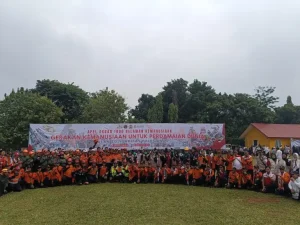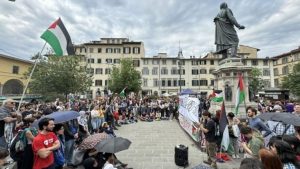Boycotting products affiliated with israeli entities is not merely a moral stance but also part of the struggle to uphold truth and justice.
Sheikh Prof. Yusuf al-Qaradawi, a prominent Egyptian scholar and former Chairman of the International Union of Muslim Scholars, stated that boycotting is a form of economic jihad.
He firmly emphasized, “Every cent earned by the israel from their products will be used to kill the Palestinian people.”
The Indonesian Ulema Council (MUI), in various statements, has declared that Muslims are obliged to support the Palestinian cause, including by boycotting products that directly or indirectly support israeli occupation of Palestine.
Also Read: The Forty-Four-Days of Glory: Azerbaijan’s Struggle for Justice and Peace
In 2023, the MUI issued Fatwa No. 83 on the Ruling of Supporting Palestinian Fighters, stating that supporting the Palestinian struggle against Israeli aggression is obligatory, while supporting Israel’s aggression against Palestine is forbidden.
This fatwa is based on several Islamic legal evidences, including the prohibition of causing harm or destruction, even in times of war, as mentioned in the Qur’an:
“And when it is said to them: ‘Do not cause corruption on the earth,’ they say: ‘We are only reformers.’”
(Qur’an, Surah Al-Baqarah 2: 11)
The Qur’an also strictly prohibits the killing of innocent people:
Also Read: Palestine Solidarity Month: A Collective Movement for Al-Aqsa and Palestine’s Freedom
“And do not kill anyone whose killing Allah has forbidden, except by right.”
(Qur’an, Surah Al-Isra 17: 33)
And further commands:
“Whoever kills a person unless in retribution for murder or spreading corruption on earth it is as if he had slain all mankind.”
(Qur’an, Surah Al-Ma’idah [5]: 32)
Muslims are also commanded to help one another in righteousness:
Also Read: Hassan al-Turabi: A Controversial Thinker from Sudan
“And cooperate in righteousness and piety, but do not cooperate in sin and aggression.”
(Qur’an, Surah Al-Ma’idah [5]: 2)
And to defend the oppressed:
“And what is the matter with you that you fight not in the cause of Allah and for the oppressed among men, women, and children?”
(Qur’an, Surah An-Nisa [4]: 75)
The Prophet Muhammad (peace be upon him) also said:
Also Read: Who Exactly is the RSF Group Shaking Sudan?
“Whoever among you sees an evil, let him change it with his hand.”
(Hadith narrated by Muslim)
The MUI’s fatwa serves as a moral and religious guideline, strengthening the call for Muslims to boycott products linked to israeli interests, and urging support for the Palestinian cause, including through economic means.
While this fatwa does not hold binding legal power, it has significantly bolstered the boycott movement among Indonesian Muslims, as reflected in widespread campaigns and social media activism.
Indeed, the fatwa is not a legally binding positive law, but rather a moral and religious compass.
Also Read: The Two-State Solution (Palestine–Israel) in Historical Perspective
Boycotting is a form of “Amr Ma’ruf Nahi Munkar” (enjoining good and forbidding evil), a non-violent jihad that aims to weaken the israel economy. It is more than just a protest it is a moral obligation and a tangible act of solidarity with fellow Muslims and the struggle to liberate Al-Aqsa and achieve Palestinian independence.
The boycott movement is not solely about economics. It is a form of global pressure against occupation, genocide, and apartheid perpetuated by israel forces.
If we are unable to take up arms, at the very least, we can raise awareness and ensure that our money does not end up in the pockets of oppressors. Every penny we spend is a vote. By weakening the oppressor’s economy, we also weaken their political power.
Thus, the boycott is a real form of support. It is not merely about trade it is resistance against occupation. It comes from the conscience, is reinforced by scriptural evidence, and is upheld by the fatwas of scholars. [Nia]
Also Read: Enchanted by K-Dramas, Dragged into Slander: Time for Muslims to Rise!
Mi’raj News Agency (MINA)

































 Mina Indonesia
Mina Indonesia Mina Arabic
Mina Arabic